All photos by the author, Deeann D. Mathews, on July 1, July 4, and July 16
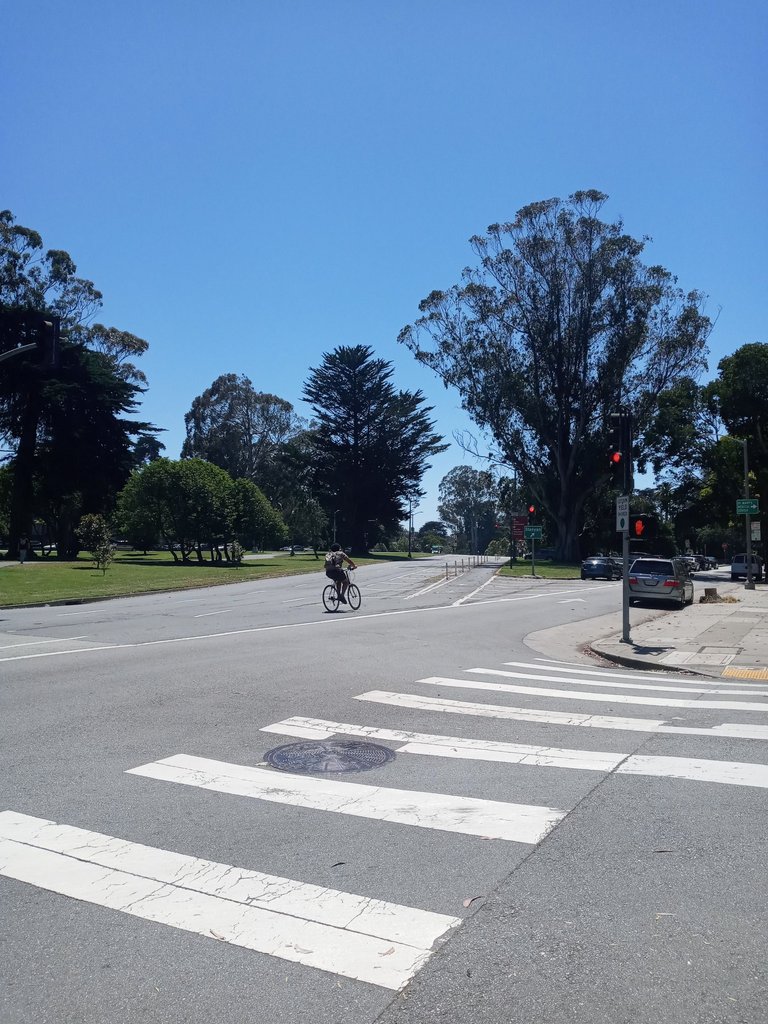
This last weekend in the United States of America ... an assassination attempt on a political candidate ... an act of inexcusable evil ... but he and we were spared the worst of it. That's what we don't need in these parts ... it already is not a safe moment for the nation.
And yet, the summer is as beautiful as ever ... and basso profundo Eric Hollaway's advice to embrace stillness is right on time:
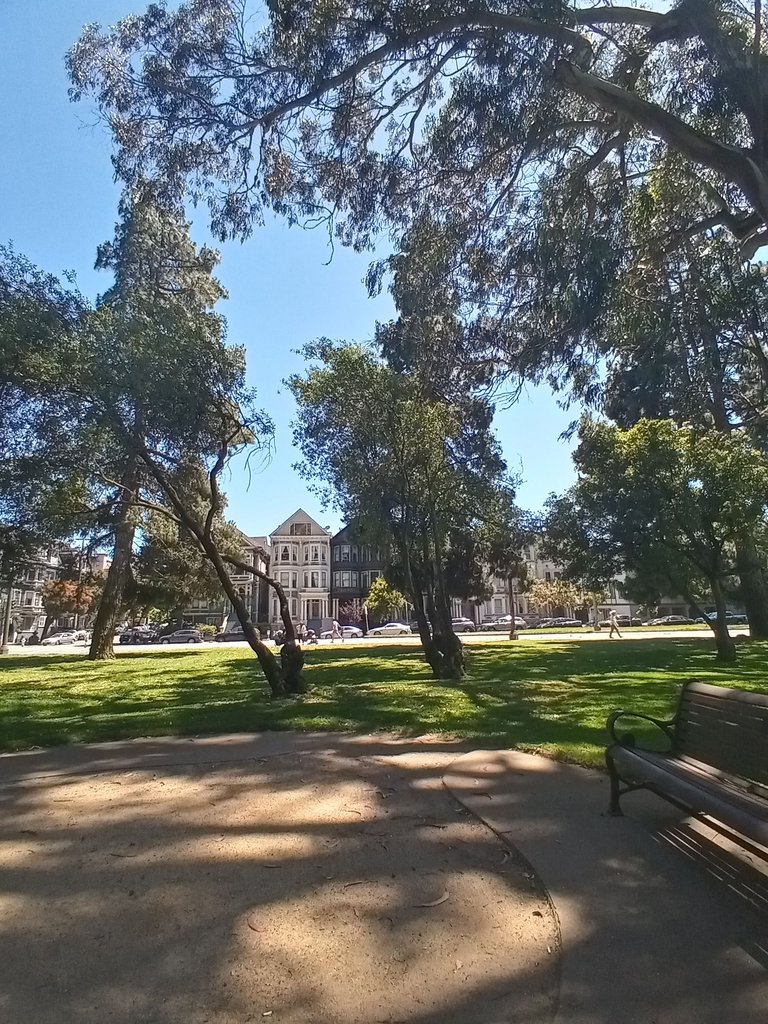
As I was considering this contrast between the country's knocking on the door of absolute political anarchy and the chaos that could create, and the deep, beautiful peace of my Blumenkind era, I reviewed at about the six-month mark -- also now at 43.5 years old, halfway to 44 -- what I have learned about safety as 2023 wound up:
- Walking where one is called, and leaving where not, is a key level
- Abiding where called -- making it home -- is another level
- "There is no bridge" -- another level
- Adorning one's self as befits one's calling -- a new level
Bach came through right on time. Now, as people expect me to react and respond to the political upheaval at hand, I am reminded not only to avoid past patterns of getting pulled into pointless arguments and providing endless emotional support for people that wear themselves out on politics and then want to be refilled by someone who doesn't -- but now I am able to think of how to respond from a place of protection, peace, and adornment in love.
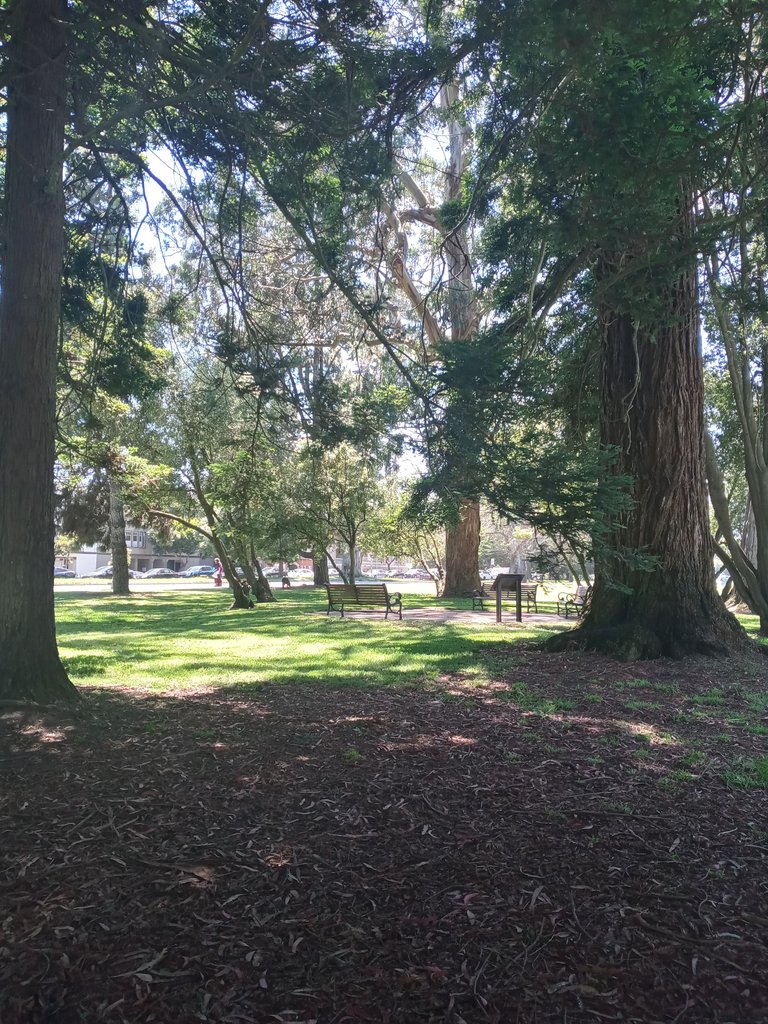
The irony: I find myself more alone than before ... and more satisfied with that ... no 24-hour news cycle for me ... no raising my blood pressure over things I cannot control at all. I get to choose what I take in, and choose who I talk with ... so I do not have to get carried away by the temper of the times, but stay focused on the work I have to do in it. There is plenty of it, plenty of good I am called to do, and it is largely undisturbed by the weekend's events ... so I am putting my energy into that. Now by virtue of all these things, I have achieved what is stated as a flat reality for the Christian in Scripture: I have realized how to be in the world, but not of the world.
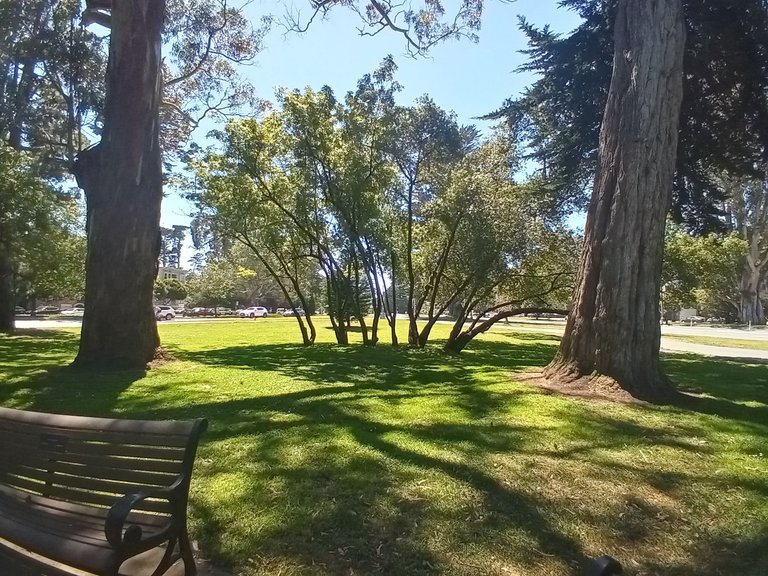
Which brings me to one of Schubert's most researched but least-heard songs ... he and his friend the poet Mayrhofer said much here in few words and less music, but my favorite basso profundo Kurt Möll (1938-2017) went and picked up this song and sang it like it was worth a million bucks ... for he knew it was worth far, far more than that.
Now, my German is not the best, but I know that title means "How Ulfru Fished," and that Ulfru is not a Germanic construction ... but Mayrhofer would have known that in Old Norse, Ulfr is Wolf and Ulfric is Wolf-Ruler ... and it just so happens that in 1817, Clemens von Metternich was just two years into his decades-long regime of suppression of the freedoms of the common people of Austria. This bit of history concerns me because everyone knows about that Austrian dictator of the 20th century, but really, in the United States, in the efforts of some states to ban and burn books and control what can be spoken about in the public square and schools, it may be Metternich's playbook, not Hitler's, that wins out, because a front must be kept up.
But, all that said ... poor Ulfru is not doing well in fishing in this song ... he can see the fish, and he has his hooks in the water, but the local water nymphs are not going to help him ... he can see schools of shining, beautifully colored trout in the river, but he cannot leave the bank, and interestingly, it says in the song that the fish, feeling their freedom, disdain his hook. Further of interest: although a wolf is an excellent land predator, it is not known for being successful in water!
But the last verse takes it up to another level ... "the earth is mighty beautiful" -- sounds like African American Vernacular English of my grandmother's time, and I'll get to why later -- "but it is not safe!" Cold storms blow through the Alps and blast the food and flowers that the people of the earth depend on to eat and enjoy the common grace of the beauty of life ... but the fish, so long as they remain in their element, are not troubled by men, wolves, or storms ... they are in the world, but not of it.
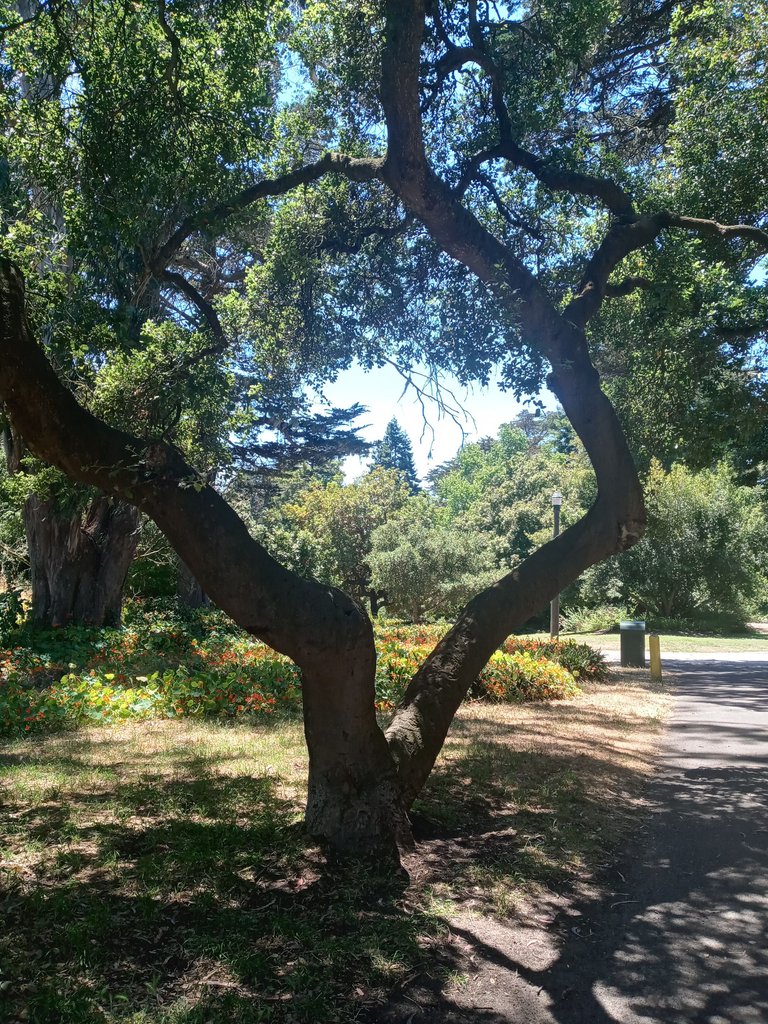
And here I marveled, having stumbled upon an Austrian lied that is eerily similar, in protest and warning value, to its Negro Spiritual contemporaries ... protest against oppression, insistence that divine forces did not back that oppression up and would one day stop the oppressor, acknowledgment of the troubles of the world, and the communication of timeless wisdom to cope with the troubles and find safety. The bonus here, of course, was that from the side of Austria, I learned specifically that I needed to prepare myself, as an intellect and artist, for such attacks as could come -- my own country's history prepared me for the racial and gendered component, but what Schubert and Mayrhofer, being native Austrians who were artists and intellects, had to endure could also be coming to a country near me...
"As it is sung in Schubert elsewhere, Frau Mathews, 'I do not chide you; I am your friend.' I will never let you be caught unaware if there is anything in my repertoire and legacy that can help you."
The Ghost of Musical Greatness Past materialized, his voice and expression befitting the gravity of the matters under consideration, his hair white and himself appearing older than he usually looked when we were about to head out on a good romp. He reminded me of King Marke, assuming some time after the deaths of Tristan and Isolde ... still majestic, still powerful, but world-weary at around 65 ... yet still determined to love, no matter what.
"It is said, Herr Möll, that when the student is ready, the teacher appears -- not yet have you failed me."
"I did not come out of permanent retirement in the spirit to Q-Inspired to be failing at my duty and my honor, Frau Mathews," he said as he bowed deeply in reception of the compliment. For a moment as he stood up, his joy was radiant in his face, but that vanished again into deep gravity.
"The last person in history I would have I desired to speak to you today of is Clemens von Metternich," he said. "In fact, I can only think of perhaps ten other figures of the 19th and 20th centuries that I would consider less desirable to speak of -- but if you were my own Fraulein Möll and I thought Germany would regress to its evil ways, I would speak with you as I do now. You have done very, very well to make sure that your life and work is only involved in what Rep. John Lewis referred to as good and necessary trouble. That, alone, as Rep. Lewis and Dr. King could tell you, is dangerous enough so that you do not need to be drawn into being the subject of repressive action because of the foolishness of your peers. Your own elders taught you this wisdom. I reinforce it for your life now in realms online that they cannot imagine. Remain wise, meine Tochter. You are no coward and therefore you must use your voice against the evil around you -- remain wise in how, and with whom, you do it."
"That's the plan," I said.
"Secondly, Hive is down in price a great deal, but you are blessed that you can appreciate it for what it is -- it is censorship-resistant and decentralized, so that the Counts Metternich of your time will not find it easy to stop the freedom of expression here. Schubert and Mayrhofer and Beethoven, all in Austria at that time, longed for what you have, and your ancestors of that time in the United States could only dream of such freedom -- do not take it for granted."
"Yes, sir. I am not discouraged by the price, because more and more I see what you are saying."
He paused, and then said in a voice half-choked, "Oh, my adopted daughter in music, my heart breaks that such a time has come that we should have to have such discourse! Oh, meine Töchterlein, my heart sings, that you have so applied yourself in abiding and in adorning yourself in your calling so that we can, at such a time as this! You will know the blessing of that obedience ever more deeply, for whatever comes, you are walking, and abiding, and adorning as you are called to be to meet it ... and upon this we pivot to what 'Wie Ulfru fischt' has more pleasantly to teach us, while perhaps in your favorite element."
I went to get my hiking poles, and we were soon out the door into summer's beauty.
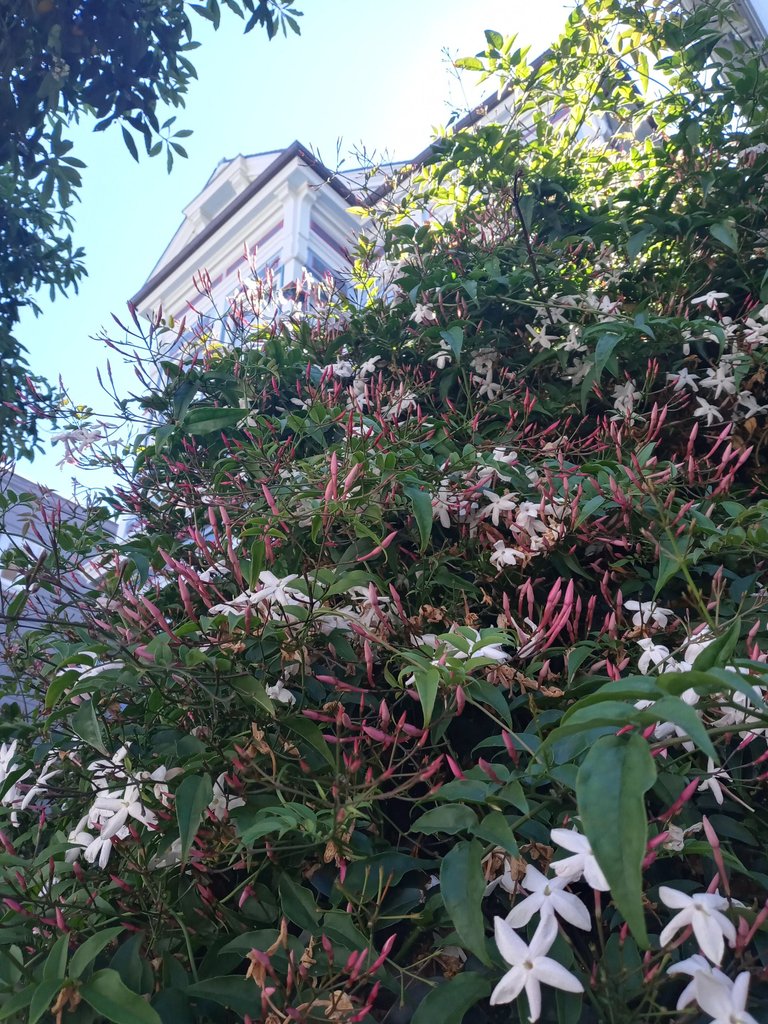
"So, I imagine you did not know that Mayrhofer in 1817 in Austria knew anything about African American Vernacular English, did you?"
I almost fell over laughing, but he was sort of right ... for the poet wrote in the third stanza of 'Wie Ulfru fischt' that "Die Erde ist gewaltig schön/Doch sicher ist sie nicht," and that gewaltig would come out as 'mighty' or 'enormous,' not 'mightily' or 'enormously' ... although of course in German and even in idiomatic English, the idea that something is 'mighty powerful,' 'mighty fine,' and 'mighty beautiful' still works. My great elders used that idiomatic manner often, and one might still hear it used in the southeastern United States across racial lines to this day. English and German are still not as far apart as many think.
However, distinctions are important, because a native German speaker knows that gewalt also means a particular kind of might and size: of force, and violence.
So, after the poet wrote two verses about poor Ulfru, and how the local deities would not let him catch even one fish in a river full of them, and how he cannot get off the bank to get into the water to catch them -- that they feel their freedom and disdain his hook -- then we hear, at last, what the poet was getting at.
"And, Schubert broke the pattern to emphasize it in the music -- he repeats the last line of the first two stanzas, but repeats that first line in the third stanza," my companion said.
"I noticed," I said. "You helped Schubert and Mayrhofer out a bit there, too."
"Of course -- since it was important to them, it was important to me," he said. "Let us consider it ... the earth is mighty beautiful, but it is not safe. No matter if you are as needful as the corn or as needful in beauty as the rose, the earth is not safe, for from cold heights, violent storms proceed forth and wreck all good."
"That rings as true today as it did 207 years ago," I said. "When you are ruled by people in high places that have no feeling for the needs of the people ... not much has changed."
"So then, notice the rest ... the river, and what is happening there in that third stanza ... the river is in the earth, true enough, but ... ."
"But not of it," I said, "so as long as the fish feel and appreciate their freedom, and are not lured out by a cunning fisherman, they are safe."
"For six months, less two weeks, I have been saying to you, abide as you are called. For about half that time, I have been saying to you, there is no bridge, and I add to it the thought that since there is no bridge, there is no one standing on it with a rod and reel, either. Last week, we discussed the adornment that goes with the abiding, and how those adorned have entered into spaces that are protective by their very nature ... do you see the progression to 'Wie Ulfru fischt'?"
"I do!" I said.
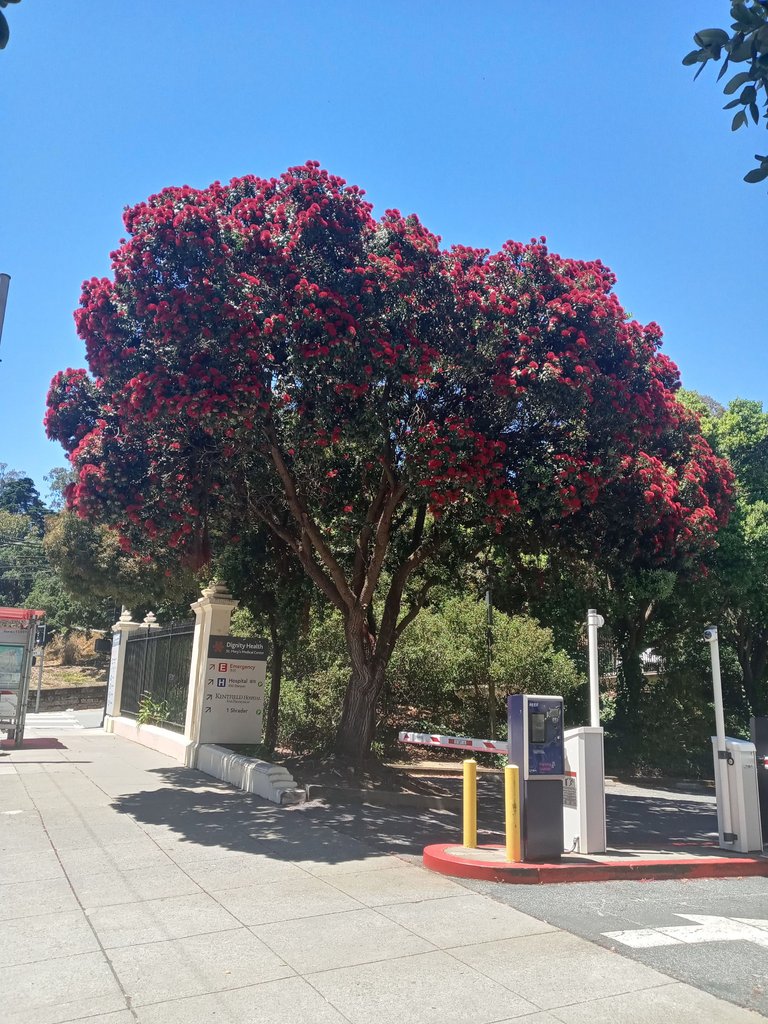
"Another interesting fact of history between the Austrian lieder of that time and the Negro Spiritual ... neither Clemens von Metternich nor the average plantation owner in this country recognized the power of music ... and so Schubert, and your ancestors, did some of the same things with music for the same reason."
"Oh ... so that is why 'An die Musik' and "Over My Head' are so similar ... both come out of a background, at roughly the same time, when the church was being used as an agent of the oppression as well ... but because music remained above that ... the fact that music was still given freely from outside the system to the people directly, to their hearts, to help them remain free ... that meant in both cases that ... God was not on the side of the oppressor after all! 'Wie Ulfru fischt' hints at the same thing in old Germanic pagan terms!"
"With that in mind, Frau Mathews, consider 'An die Musik' again ... consider that I knew, while singing it, the history of it so far as Schubert's own time ... consider that I also knew of the failures of the church in my own time ... and yet, Frau Mathews, me, a mere German ... still was given music, and allowed, without regard to what the two generations before me had just done, to make my livelihood from it.
"Consider also that there are times when people do not know what to say or do in doctrinaire terms ... when the contradiction is very deep between what the powers that be in church and state have said and done and what the faith has said is to be done that resonates within ... when music may well be the last temporal link left to love, joy, peace, and goodness.
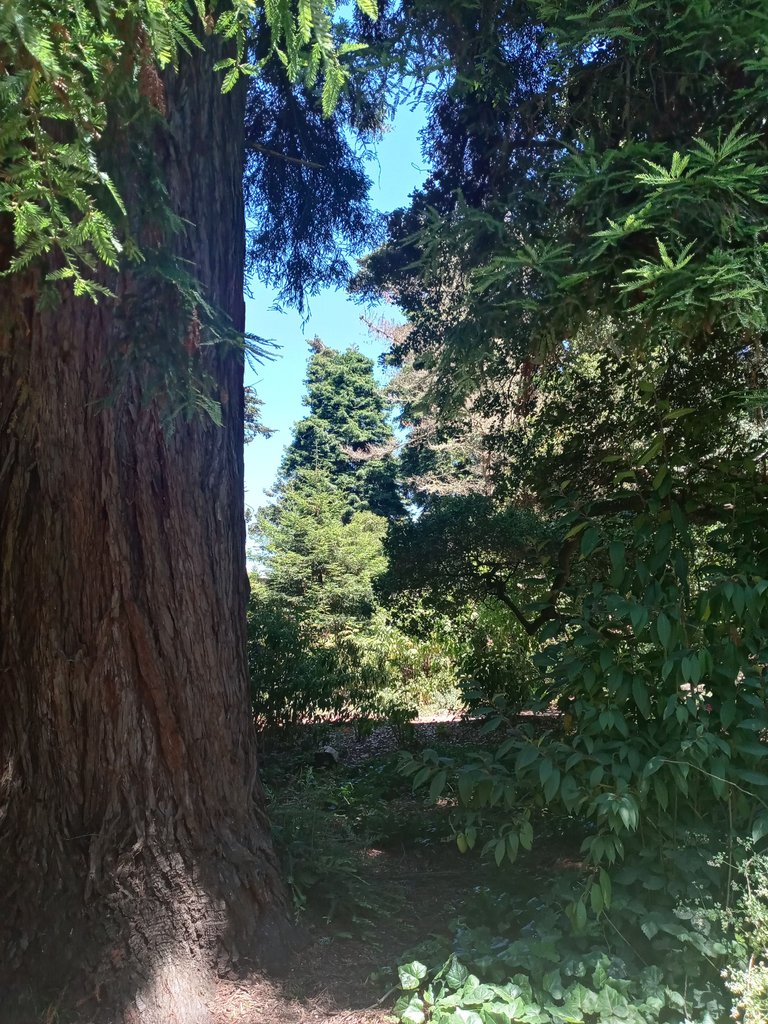
"Your ancestors, and Schubert, would have felt a level of betrayal from all that ostensibly stood for God in the world that we can hardly comprehend ... but still, they had music and knew something that could not be taken from them. They had a first natural principle that still holds true even in a doctrinaire sense for a Christian committed to the true faith: no one presently of this earth can control another soul's access to God and His grace, and therefore, no one may completely or forever impede the freedom of another. The evidence at hand was music, itself."
"Indeed!" I said, "for, despite everything to the contrary, my ancestors knew 'there must be a God somewhere' because there was music in the air above them that they were allowed to hear although they were told they were no more than beasts of burden ... while Schubert at that same time with his other poet friend Schober heard that sweet, holy Akkord -- a chord in German, but everywhere requiring at least three notes -- from above as well! You are right -- they are finding the same evidence, at the same time in history -- that is what we call common grace!"
"And so thus far, Frau Mathews, even assuming only common grace, many little fish leaned into it and found enough refuge to live and carry forth the movement toward freedom -- in the world, but even in terms of common grace and holding to it, not quite of the world, not quite defeated, not quite acquiescing, not quite going along to get along -- even thus far, there was a refuge!"
I considered this ... and then the key line from "Wie Ulfru fischt" came back to mind ... and then I wept ... for when one considered how few people knew or cared about grace over the pursuit of power, money, and status ... how people and institutions, no matter how beautiful, gifted, venerable, no matter how solid the appearance of good was, so often resorted to gewalt -- strong violence -- upon anything and anyone that threatened their true pursuit ...
"Die Erde ist gewaltig schön/Doch sicher ist sie nicht," my companion sang, and then rough-cut it into English the second time: "The earth is mighty beautiful/Yet surely is not safe."
He paused, and then rolled our further thoughts in: "The world is mighty beautiful/But where graceless, not safe."
"Das ist es -- that's it," I said. "That's it, right there. Where there is no sense that we are human beings who share in the common grace of life ... at a minimum ... then either everyone becomes a competitor to be defeated or assumed to be and used as chattel -- in fact, what drives the competition is the certainty that downward mobility to chattel status is easy."
"And yet," he said, "is it not amazing that fish know how to school, and collaborate, and thus protect each other and themselves?"
"They are in the world, but not of it," I said with a chuckle. "When one walks in grace, collaboration comes easily ... we actually can be great in harmony as human beings!"
I paused, and then smiled.
"Thank you ... my mind was wandering in dark places."
"You are welcome ... and I have not yet done what I am about to do to get you out of there."
An octave above his last note, I surprised him with the complement to 'An die Musik' from my musical heritage ... and stretched out a little bit on the Negro Spiritual "Over My Head" since the intervening centuries have given me also gospel music to work with ...
... and by the time we had completed this sharing, we found a little crowd had gathered in this little oasis of common grace through music, after which gratitude and joy and friendship spontaneously broke out between us all ... it was but for a little while, but everyone walked away blessed, the memory all of ours forever.
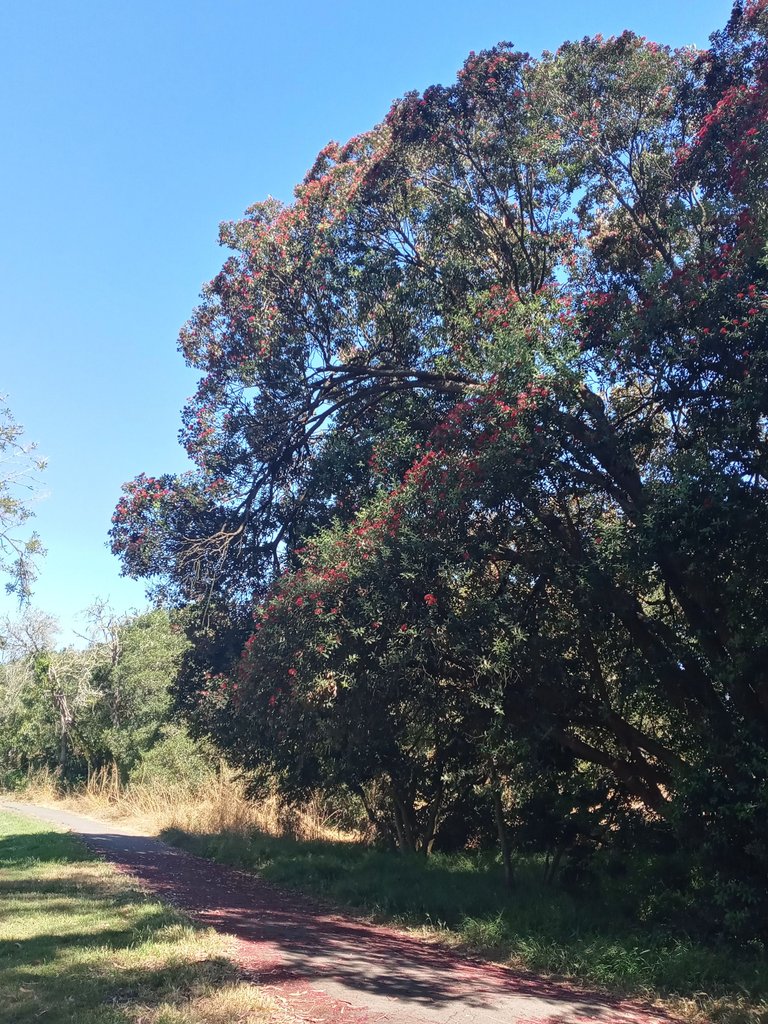
At last my companion and I walked away, each with an arm around the other, our hearts knit so together in this joy that it was a little while before I realized ... up a steeper hill and only when I felt the caress of a tuft of fog at its own level did I realize we had just kept walking up, and up, and up, the path having come down to meet us as if HE were walking home...
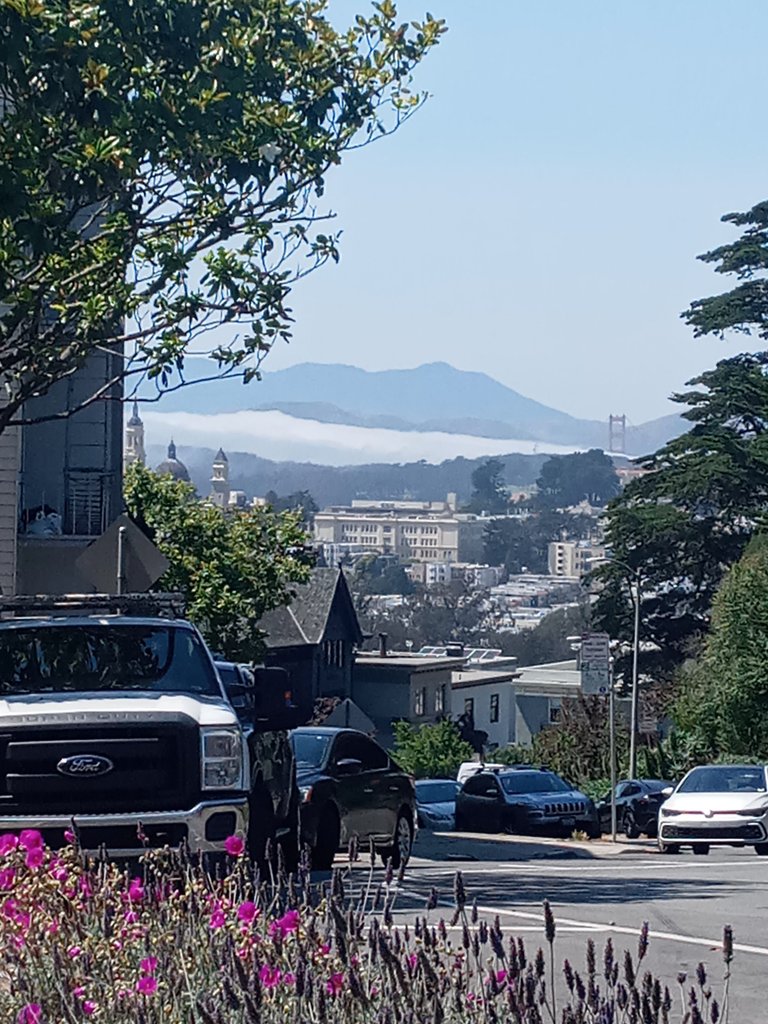
"Achtung!" I said gently, and he came to himself and began our descent, landing us on the western paved high point of Buena Vista Hill.
"Verzeihung mich, bitte ... ich fühle mich bei dir sehr wohl ... so sehr zu Hause bei dir ... ."
Now that took me a few moments to work out ...
"Forgive me, please ... uh ... bei dir is with you ... zu Hause is basically at home ... wohl is well ... uh ... ."
And then I laughed.
"You feel so well and so much at home with me you very nearly walked right up home with me, and are apologizing for that part!"
He nodded and laughed, and then sat down and passed his hand across his head.
"Kurt ... Bring dein Leben in den Griff," he said to himself, and I cracked up laughing.
"Is that how you say 'get your life together' and 'get a grip' at the same time? Bring your life into [the] grip?"
"Das ist es ... that's it, Frau Mathews, indeed."
"I like it -- I'm going to start using that to explain 'get your life together' to people who have no idea what that means. I love German not least because it helps me use English better!"
"More precisely, anyhow ... for you look for depth in a shallow world," he said gently.
About then I noticed: he was 10 years younger in appearance than he was when he arrived. I thought back to when that had happened ... .
"I know that you do not sing as readily as I do, and that it is more personal to you," he said, "so when you shared with me your ancestral song in response to mine ... oh, Frau Mathews ... my heart was already completely open and overflowing in sharing with you ... but how you blessed me in return ... and we, together, shared with all others who came ... and there were those who spoke one, both, or neither of our home languages, but they felt the holy accord, the joy, the love, the freedom, in the music. After that ... I very nearly took you where I myself was always very near to going in my mortal life when such things happened!"
"Mich auch," I said. "Me also."
"Ich auch -- I also," he said in a gentle correction. "Remember German's greater precision -- that is first person singular, and the Americanism of 'me too' does not quite exist there."
"Danke," I said. "In proper English, it would be 'I also,' also!"
He laughed, and reached his arm out to me for a sideways squeeze.
"Now I yet need to stand still doing this," he said, and I laughed. "Yet I know how to settle us both down, for this must be addressed: what we and those listening to us have just experienced is why the artist is in such danger in both abusive everyday relationships and repressive regimes: he or she immediately can give the lie through his or her art to the idea that the people must depend down to the soul on their abusers. A devout, well-studied Christian artist such as yourself would doubly be in danger, for you point by both doctrinal teaching and through your choice of music clearly to a God Who has not and is not appointing any mortal take His place in the lives of the people on any level. The Negro Spiritual actually sits, in artistry, in that combined space ... it is fitting that you should be a steward of it, at such a time as this."
"And I'm willing to wager that there are more than a few lieder and lieder-singers that also were serving that same purpose," I said.
"It is making an interesting study for someone who is interested in the subject, Frau Mathews," he said with a smile. "I drop you a further hint for when you are not as busy and have a year or so to devote to it: who were the composers and singers in the 20 years before my birth who charted a different course than Josef von Manowarda?"
"Richard Strauss quietly resisted," I said. "His later lieder may show that."
"That's a good place to start," my companion said, "and in the meantime, you will find plenty of material, because you are listening for it, and I will be of help to you as I can. You might also look more carefully at Jessye Norman's choices of lieder and Negro Spirituals ... perhaps the work of finding the connections only needs to be built upon and expanded for the 21st century, Frau Mathews."
"I will -- in fact, I am!"
"You are, Frau Mathews, for such a time as this! The song of freedom must and will continue on -- and Frau Norman and I, from both sides of your childhood inspirations in music, may rest well knowing that the work has been in good hands all along: yours, for to this also, *you are called." Already to five generations -- and you are but 43 years old -- you have ministered the songs of freedom that are your heritage. Already on Hive, you are sharing with an international audience. Walk, abide, and adorn yourself, Frau Mathews, and keep going. There is no more, and no less than that -- all other doors will open to you as you are going."
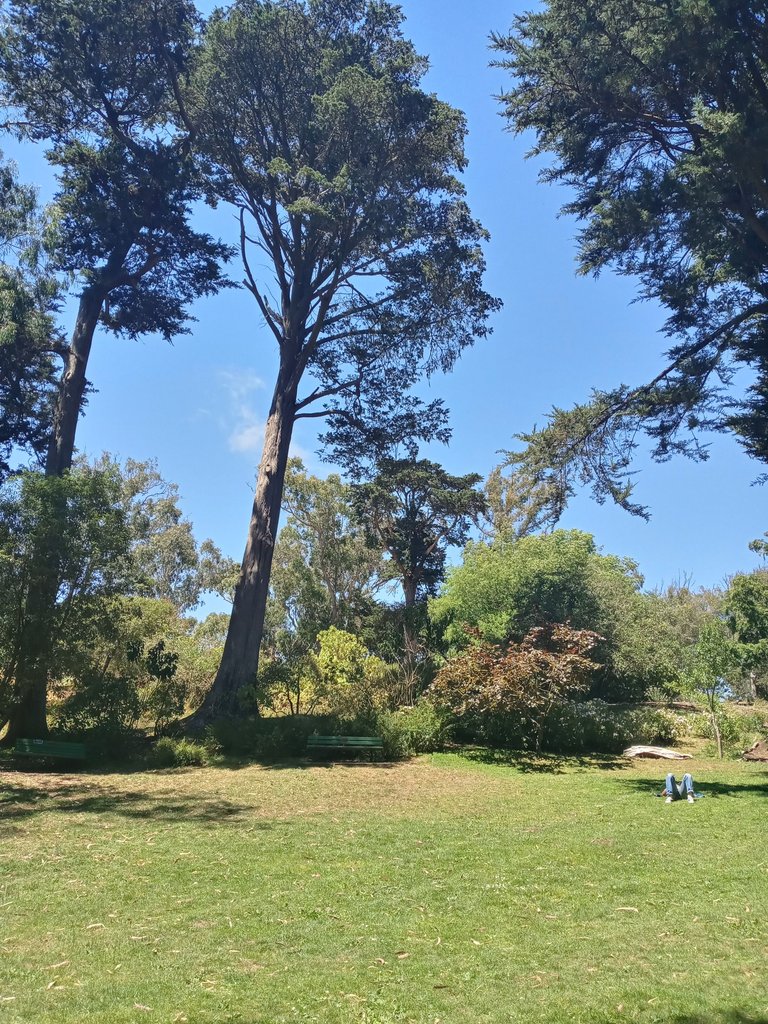
A beautiful song, and I waved my hand Over My Head while you sang it.
On the happenings of last week, I do not watch the news and even though I do not care for the man, I do not want to see him or anyone die.
You and I are on the same page. Neither he nor we need him to do anything but make it to November, where his appointment as president is in the hands of God, through the will of the voters. He will not have my vote, BUT, he does have my prayer for his safety.